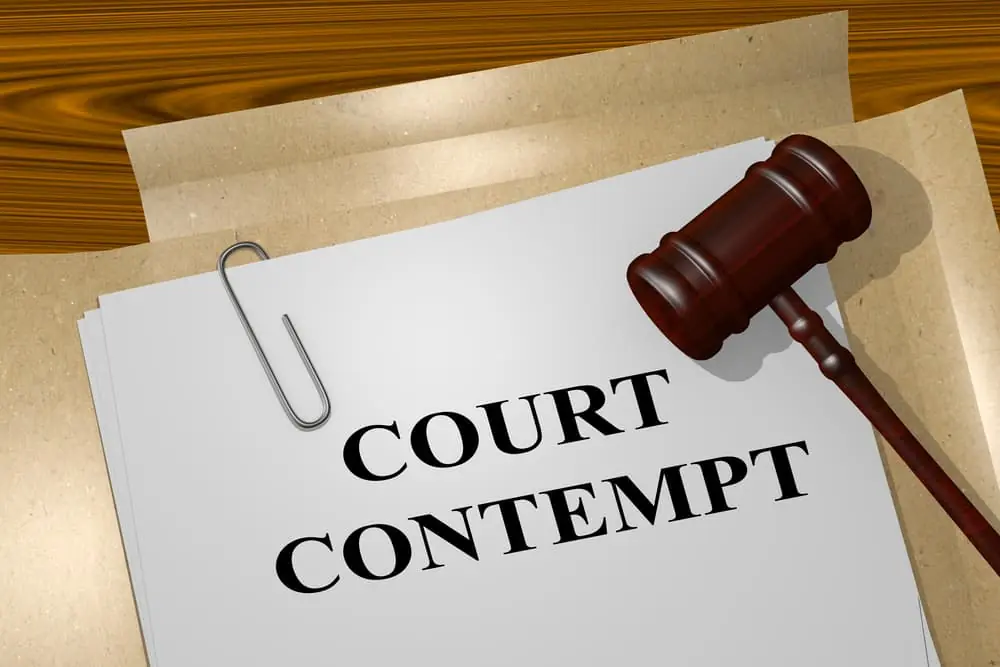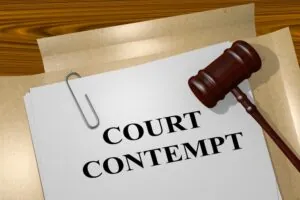Family law is personal. It’s not just paperwork and courtrooms; it’s your life, your children, and your future. When someone ignores a judge’s ruling, refuses to pay support, won’t follow custody orders, or keeps breaking court decisions, it’s more than frustrating. It threatens your stability, peace of mind, and sometimes even your safety.
That’s what contempt of court looks like in real life. Whether you’re being accused or trying to hold someone accountable, you might feel overwhelmed, angry, or worn out. You don’t have to face this alone. A Spokane family law attorney can help take some pressure off and make sure the court hears your side. This isn’t just about rules; it’s about protecting what matters most and making sure no one gets away with ignoring the law.
Contact Us Today For A Consultation
Understanding Types of Contempt in Family Law
When it comes to contempt in family law, there are two main types to know about. It’s important to understand the difference because each one works in a different way.
Civil Contempt
Civil contempt tries to get someone to follow a court order. It’s like a nudge from the court to do what they promised. For example, if someone isn’t paying child support, the court can step in and order them to start paying.
Criminal Contempt
Criminal contempt is more serious. It’s when someone breaks a court order on purpose and faces punishment for it. This can mean fines or even jail time in some cases. Both types can seriously affect your case and your life.
Knowing which type applies can help you figure out your next move. Don’t wait too long to get advice. Call a family law lawyer to understand your options.
Common Examples That Count as Contempt in Family Law
Contempt can happen in many ways. Here are some of the most common examples people see in family court:
- Not paying child or spousal support as ordered by the judge
- Ignoring custody or visitation schedules and missing visits without permission
- Violating protective or restraining orders meant to keep someone safe
- Refusing to hand over property or documents after a divorce or separation
These actions break court orders and can lead to serious trouble. If any of this sounds like your situation, don’t wait. Talking to your family law attorney can help you figure out what to do next and protect your rights.
Legal Process for Filing or Defending Against Contempt Charges
Contempt motions typically begin with filing paperwork that details which court order was violated and how. Family law courts follow legal procedures designed to ensure both sides have a fair chance to be heard.
At the hearing, the party bringing the contempt claim must prove that the violation occurred. The accused then has the opportunity to explain why they did not comply, including any valid reasons or circumstances beyond their control. Having a family law attorney is important—they can help gather evidence, prepare your case, and represent you effectively to protect your rights throughout this legal process.
Penalties for Being Found in Contempt of Court
If the court decides someone is in contempt, they can face a wide range of penalties, including:
- Court-ordered fines or extra fees
- Make-up visitation time
- Income garnishment or intercepted tax refunds
- Jail time in more serious cases
- Court-mandated parenting classes or therapy
- Possible changes to custody or support orders
These penalties are nothing to take lightly. They can affect every part of your life, especially when children are involved. The support of your family law lawyer can give you a better shot at protecting yourself and minimizing the impact.
What to Do If You’re Accused of Contempt
If you’ve been accused of contempt, it’s normal to feel panicked or confused. But ignoring it won’t make it go away. You need to act quickly and treat it seriously.
Even if you think the accusation is unfair, the court won’t know your side unless you speak up. Maybe you lost your job and couldn’t pay support, or maybe you were blocked from seeing your child. That context matters. A family law attorney can help you present it the right way.
They can also help you avoid making costly mistakes, like missing a deadline or saying something in court that could backfire.
How to Hold Someone Accountable for Violating a Court Order
If you’re the one trying to enforce a court order, you might feel exhausted, angry, or stuck. Whether it’s unpaid support, missed visits, or constant violations, the behavior has consequences—and the court can do something about it.
You can file a motion for contempt and ask the judge to step in. This isn’t about revenge. It’s about making sure your rights are respected, and your child’s well-being is protected.
A family law lawyer can build a strong case, document the violations, and ensure your voice is heard in court.
Proving Contempt in Family Law: What Evidence Matters
To prove someone is in contempt, you’ll need to show three main things:
- There was a valid court order in place
- The person knew about the order
- They knowingly and willfully violated it
Useful evidence might include:
- Missed payment records or receipts
- Emails and text messages
- Visitation logs
- Screenshots or saved communication
- Statements from witnesses
Gathering this kind of evidence takes time, and organizing it properly for court isn’t always simple. A family law attorney can help make sure you don’t miss anything important.
Can Contempt Lead to Custody or Support Changes?
Yes, it can. When someone keeps violating court orders, especially if it affects children, a judge might decide to make changes to those orders.
For example, a parent who regularly blocks court-ordered visits might lose some custody rights. Someone who consistently avoids paying support can face adjustments to how and when those payments are handled.
If you believe contempt is threatening your child’s safety or your financial stability, a lawyer can ask the court to step in and make a change.
Secure a Better Tomorrow for Your Loved Ones
Contempt of court in family law isn’t just a legal issue, it’s personal. What happens now can affect your freedom, money, and time with your kids. Whether you’re facing accusations or trying to enforce the rules, the next steps are really important.
You don’t have to do this alone. A good family law attorney can guide you, protect your rights, and speak up for you. It might feel overwhelming, but with the right help, you’ll get the support you need. Don’t wait until things get worse, reach out and take control today.







